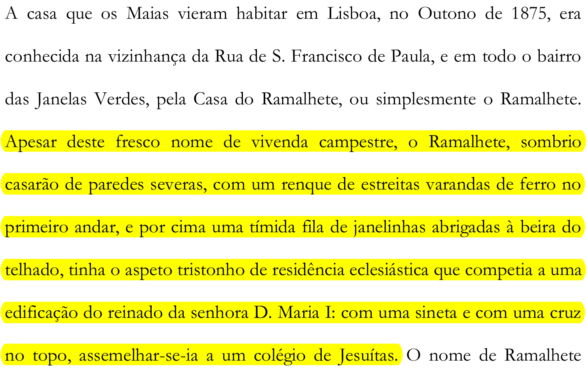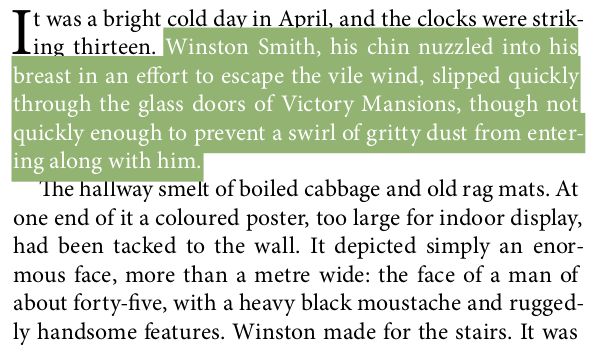writing - MetabolicEngineeringGroupCBMA/MetabolicEngineeringGroupCBMA.github.io GitHub Wiki

Many of today's students have been subjected to writing essays with minimum word counts with the implicit encouragement that writing more is better and will give you a higher grade.
In my humble opinion, minimum word counts teach bad habits and get in the way of good communication. They also make writers lazy.
A famous example of short but effective communication is Abraham Lincoln's' Gettysburg address.
Lincoln's speech has 272 words, lasted 2 minutes, and became known as one of the greatest ever given.
The same day another man spoke for two hours giving a speech that few remember.

Quotes on writing by famous writers
Writing more or producing more elaborate text does not necessarily communicate the message more efficiently.
- “A successful book is not made of what is in it, but what is left out of it.” - Mark Twain
- “My aim is to put down on paper what I see and what I feel in the best and simplest way.” - Ernest Hemingway
- “It is my ambition to say in ten sentences what others say in a whole book.” - Friedrich Nietzsche
Winston Churchill's memo on brevity
As the battle of Britain was picking up speed in 1940, Winston Churchill wrote the memo below complaining that his own cabinet wrote texts that were too long. I reproduced this memo below, the emphasis in bold text are mine. The way the memo is written is an example of the message that he tries to convey.
Memorandum by the Prime Minister
To do our work, we all have to read a mass of papers. Nearly all of them are far too long. This wastes time, while energy has to be spent in looking for the essential points.
I ask my colleagues and their staff to see to it that their reports are shorter.
(i) The aim should be reports which set out the main points in a series of short, crisp paragraphs.
(ii) If a report relies on detailed analysis of some complicated factors, or on statistics, these should be set out in an appendix.
(iii) Often the occasion is best met by submitting not a full-dress Report, but an Aide-memoire consisting of headings only, which can be expanded orally if needed.
(iv) Let us have an end of such phrases as these: "It is also of importance to bear in mind the following considerations......", or "Consideration should be given to the possibility of carrying into effect.....". Most of these woolly phrases are mere padding, which can be left out altogether, or replaced by a single word. Let us not shrink from using the short expressive phrase, even if it is conversational.
Reports drawn up on the lines I propose may first seem rough as compared with the flat surface of officialese jargon. But the saving in time will be great, while the discipline of setting out the real points concisely will prove an aid to clearer thinking.
W.S.C
10, Downing Street.
9th August, 1940.

How English is different from Portuguese
Below are two images of the first page of "Os Maias/The Maias" by Portuguese writer Eça de Queirós and "1984" by George Orwell. Both books are examples of excellent writing in their respective languages.
I have highlighted the longest sentence on the page for both books, 74 words vs 42 words.
Os Maias

1984

It should be evident that the English text is made up of mostly short sentences compared to longer ones in Portuguese.
Most sentences in English conveys a single message or idea while sentences in Portuguese often contains several.
It is important to understand and adapt your writing style to the language you are using.
Common errors by native Portuguese speakers
I have seen variations of the phrase below many times in Master and PhD theses:
"To confirm the activity of the A pathway and its effect on B production, the strain with B (empty plasmid) and C (pathway) were used as a comparison with strains for strains with C, either with the X gene deletion or the Y gene, in terms of growth, pH, and compounds produced by its metabolism. The strains were grown for 24 h at 37 ºC, 200 rpm in M medium due to the selectivity of B and C."
This sentence was probably more or less translated from Portuguese, word by word. The text is long, cumbersome and hard do understand. This text could be rewritten as shown below, retaining all of its meaning:
"Strains carrying B or C with or without genetic deletions in X or Y were inoculated in M medium and cultivated for 24 h at 37 ºC, 200 rpm. The M medium is selective for the B or C plasmids. Samples were periodically withdrawn for analysis of optical density (OD600), pH fermentation substrate and fermentation products."
… Explain details by referring to results in figures ...
"The phenotypical differences of strains with C compared with B show that the A pathway is active and resulting in increased production of B."
Politics And The English Language
George Orwell wrote an essay on writing called Politics And The English Language which is well worth the time it takes to read. In the end he lists five general rules for improving clarity and precision of writing:
- Never use a metaphor, simile or other figure of speech which you are used to seeing in print.
- Never use a long word where a short one will do.
- If it is possible to cut a word out, always cut it out.
- Never use the passive where you can use the active.
- Never use a foreign phrase, a scientific word or a jargon word if you can think of an everyday English equivalent.
- Break any of these rules sooner than say anything outright barbarous.
Examples of good scientific writing
Listed below are some examples of good scientific writing. I hope to extend this list.



